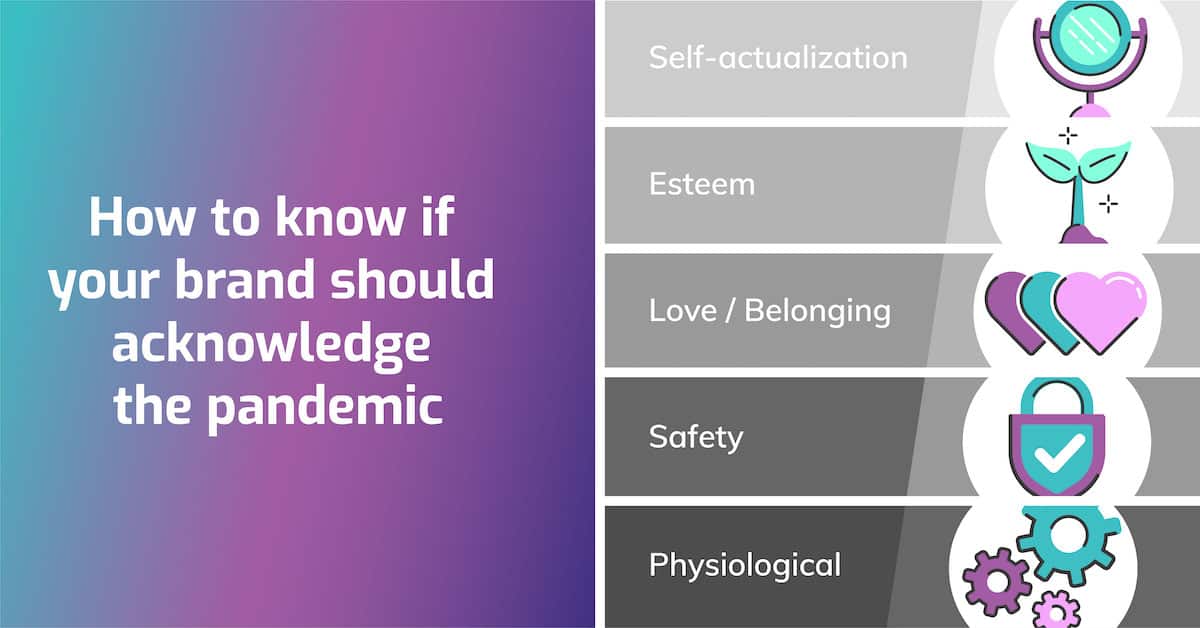Should all brands acknowledge the pandemic?

We’ve been talking a lot about how your brand might respond to the pandemic, but we haven’t discussed if your brand should respond. Betty Strigens, our Content Strategist, has some good thoughts here:
Sometimes words fail when the world is faced with tragedy. Still, most brands have tried to communicate something during the pandemic we are in. Many have struggled. For instance, this mission-based chocolate company admits they don’t know what to say to their audience right now. So instead, they just ask how everyone is doing. That’s keeping it real without forcing conversation or sweeping it under the rug.
If you work for a brand and find yourself trying to decide how much you should talk about COVID-19, we have one way that can help reveal what your audience really expects from your content right now. Start by thinking about what information people actually need.
Ask yourself this. Where does my brand fall in these categories?
- We literally keep people alive.
- We empower people to cope and thrive.
- We love, comfort and unite people.
- We help people feel respected by self and others.
- We enable success and transcendence
If this sounds familiar, reverse the order, and you’ll see how it aligns with Maslow’s hierarchy of human needs.
- We enable success and transcendence. (Self-actualization)
- We help people feel respected by self and others. (Esteem)
- We love, comfort and unite people. (Belonging)
- We empower people to cope and thrive. (Safety)
- We literally keep people alive. (Physiological)
In this hierarchy, needs range from tangible to intangible. Tangible needs are the wide base at the bottom of a pyramid, and intangible needs just a small point at the top.
It’s a good reminder that, in times of crisis, people are first and foremost, concerned with the tangible. It’s why they stockpile toilet paper. And it’s why they don’t want luxury brand ads overserved to them now. But if your brand’s content can offer tangible help for human needs, people are less likely to find it in poor taste.
So what about prestige brands on the intangible side of things chiming in? Is there anything wrong with a company like Lexus changing the tone of their messaging to be less about competing in luxury, the “most prestigious race in the world,” and more about “People First”? Not really, as long as they are showing us how they mean it. But if served to people in the wrong place or served too often, it could be met with eye-rolls.
So remember, if you want to show people you care, find ways to give them tangible help.

